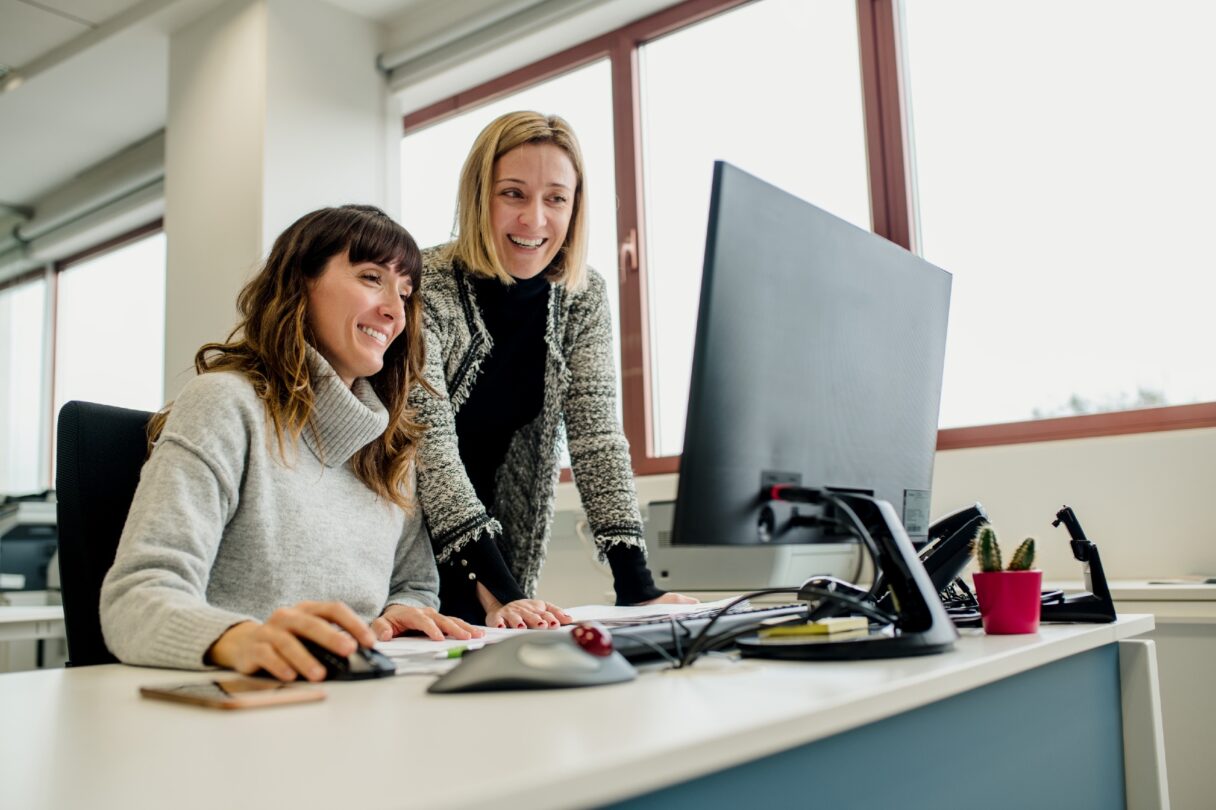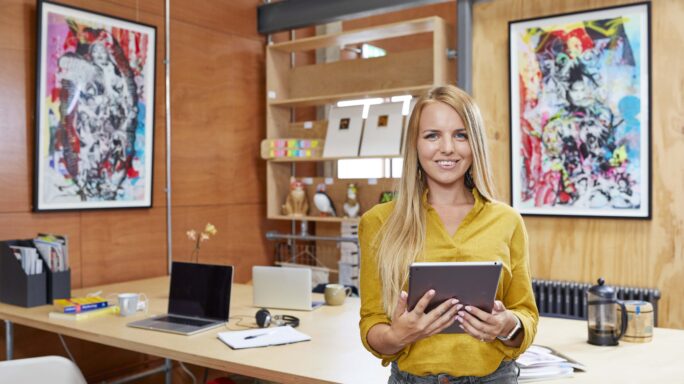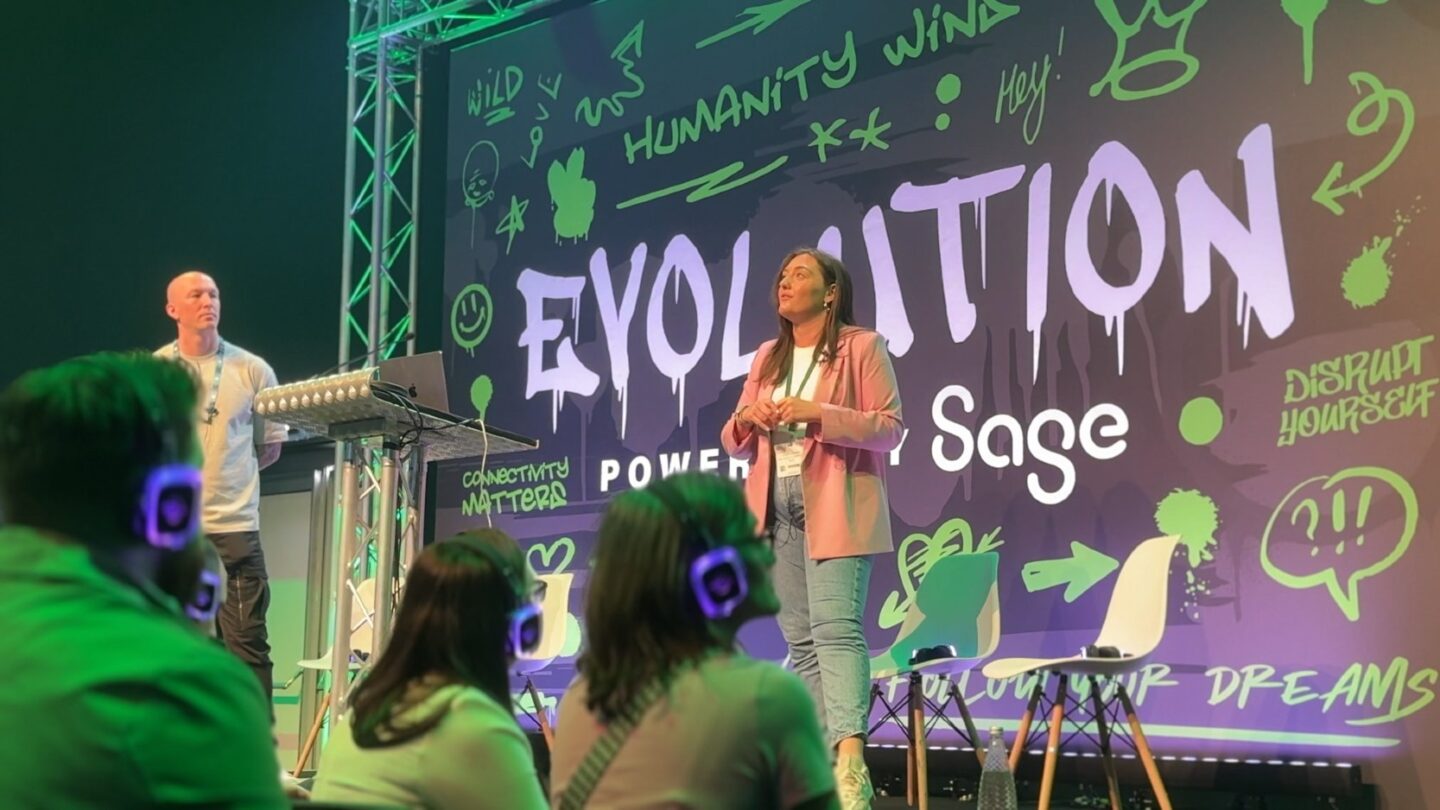Strategy, Legal & Operations
Accountants, here’s how to adapt to a changing world, according to a top futurist

As part of our Inspire Me series, top futurist Nancy Giordano takes a deep dive into the significant changes we’ve seen over the past year and how we can be better prepared for the future. In this article, she shares four tips to help your accountancy practice adapt as the world changes.
We haven’t just survived this past year, we innovated at an accelerated pace to overcome challenges, coming up with really creative ways to keep doors open and jobs safe.
Those of us whose livelihoods were impacted by the pandemic found new ways of doing business, discovered new talents and tools.
And it looks like this new way of working is the way forward for you, your clients and your accountancy practice. Here’s how you can adapt as the world changes.
1. Embrace the in-between
We are on the cusp of a massive innovation boom.
We have experienced how much we’re actually capable of doing if we’re forced to rethink the way we live and work during a pandemic, and that’s not something you can just hit pause on because we’re on our way out of it.
This is the productivity era, and we are seeing a fundamental change – a great leap – in the way we see things, do things and plan for the future.
Instead of having a fear of the unknown, accountancy firms need to see this as space to experiment, a carte blanche opportunity to do things differently and do things better than ever before and help clients shine brighter.
The global response to coronavirus highlights that we need to get more comfortable operating in the liminal, the gap between now and next, what we know and what we don’t know.
Embracing that uncertainty is what sets you and your practice up for extraordinary opportunities.
It’s a shift in perception that is the driving force behind the kind of innovation that not only helps your clients and your organisation succeed, but advances the industry as a whole.
2. Address the skills gap
The question of job security in the face of new technology has been around as long as we can remember.
And part of being a futurist is being a realist, so with a question like ‘will there be more jobs in this new era, or fewer?’, the reality is that we don’t know that yet. It’s too early to tell.
But what we do know is that the skills gap is growing by the day.
We can’t learn and upskill fast enough to keep up with technological advances, and this is something that needs to be addressed before we can worry about anything else.
In an industry such as accountancy, which has become so tech-driven, looking to adapt and address the skills gap is the best option.
Give yourself and your team the time and resources necessary to sharpen old skills and acquire new ones in order to increase market share, work more efficiently, and retain your best, most ambitious talent because you are a future-focused competitor.
This is an opportunity to reconnect with your team and increase business opportunities and revenue. Invest now to upskill staff, to protect revenues in future.
3. Shape the future of work/ing
It’s not just the future of work that we’re looking at, but also the future of working.
What will the working week become?
What should it look like?
In a world where so much is different, can we continue to operate on an antiquated model based on the production lines of yore?
If we want a fair shot at bridging the ever-widening skills gap, we need to account for continuous learning. We need to build a working week which allows for more study, and in turn greater productivity.
Burnout is a one of the most pressing challenges across the industry right now.
As constant learners, accountants now need more space to develop their knowledge and stay up to date on the latest legislation and developments in the industry. And there are countless things organisations and governments can do to help with that.
Spain, for example, is the latest country to trial a four-day work week, amounting to about 32 hours, without any changes to employees’ salary.
The government makes up the difference in salary for workers who make the first, equating to an investment of about €50m (£43m) over three years.
But this kind of initiative doesn’t come out of nowhere; it takes people power.
The people behind the business, behind governing bodies, need to be ready to jump into the idea of doing things differently and, more importantly, not continuing to do things just because ‘that’s the way it’s always been’.
That’s the only way to avoid stagnation, both professionally and creatively.
So, ask yourself: what can you do, as an individual but also as an accountancy firm, to blaze a trail into the future of the way we work?
4. Less leadership, more leader-ing
Forget about leadership, which conjures up images of hierarchy more than anything else these days. What we need is something you can practise day-to-day; that’s where ‘leader-ing’ comes in.
Broadly speaking, leader-ing is the ability to handle dynamic change in a more inclusive, caring and adaptive way.
It’s what allows us to see things like change and risk, as positive opportunities. To become more curious and stop being afraid of what we’re losing and instead embrace what we’re gaining.
Ultimately, that’s how we build sustainable, long-term value, and create the kind of fertile environment that’s perfect for not only innovation but experimentation too.
Leader-ing is contagious. It starts with one, then spreads to a team, then an entire organisation, an industry, and so on.
Ask yourself these questions:
- How can we incentivise curiosity?
- How can we incentivise collaboration?
- How can we think about building for contribution versus extraction?
This subtle shift in the way we think is worth getting excited about. Try to build a team and business model that’s about being collaborative, experimental, and risk-positive to safeguard future growth.
There’s really no better time to start working on this shift in mindset. You’re standing at the start line of the productivity revolution.
Inspire Me
Inspire Me is a thought-provoking series of three 30-minute episodes featuring Nancy Giordano, Michael G Jacobides and Fearne Cotton. To enjoy Inspire Me On-Demand, book for free today.








Ask the author a question or share your advice